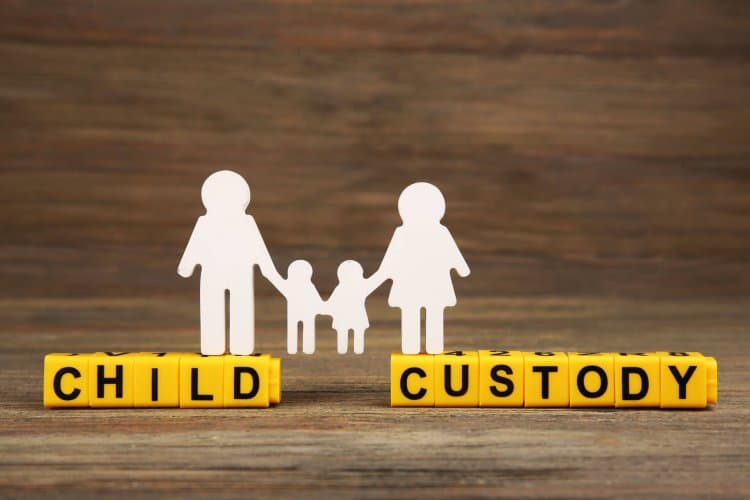
Child support and Custody Laws in UAE
Personal Status law controls marriage, divorce, succession, child custody, maintenance, and guardianship within the UAE. It is based on Sharia, which is the interpretation of the Quran and the Prophet's traditions blended with the Sharia principles of the Imam Malik School.
The custodial law in the UAE is an area of law that many individuals throughout the globe are unaware of. In custody fights, the final aim, and most essential goal, is the betterment of the kid, as it is in nations all over the world. The various duties are mentioned in UAE custody laws to parents and is an intriguing aspect of the legislation.
CHILD CUSTODY
The Personal Status Law is based on Shariah Law principles and incorporates contemporary requirements. The laws pertaining to child custody provide the court’s exclusive power to deny parental claims and grant possession to a child based on the kid's safety, security, and future.
The Wadeema Law protects children against discrimination based on origin, gender, status, nationality, religion, socioeconomic position or handicap. The law also punishes parents who disregard their child's needs, leave them alone, or fail to enrol them in school or register them at birth. Children under the age of 15 should not be made to work, and the law also forbids any unlawful working circumstances that endanger their health, physiological, moral, or mental integrity.
CUSTODY AND GUARDIANSHIP
The different roles assigned to mothers and fathers, such as 'custodian' or 'guardian,' are an interesting aspect of UAE custody laws. A kid's guardian provides financial support for the child, makes significant choices concerning the child's education and upbringing, and manages the child's affairs in general. On the other hand, the caretaker is concerned with the child's day-to-day activities. The custodian has day-to-day physical custody of the child and is responsible for raising and caring for the child. It is conceivable for one parent to serve in both capacities. The mother is usually given custody of children until they reach a particular age, but the father is always regarded the guardian. The Court, on the other hand, has the authority to issue orders that are in the best interest of the child.
WITHDRAWAL OF CUSTODY
If the mother is considered ‘unfit' to be the kid's primary caregiver, she loses custody of the child. The woman must be of sound mind, honest, mature, competent of rearing a child, free of contagious diseases, and not have been convicted of any major crime. If the father alleges that the mother is a ‘unfit' caretaker, the Court will conduct a thorough inquiry with statements, witness testimony, or an independent expert who may be requested to report on the mother's mental health. The Court does not take lightly the conclusion that a mother is a ‘unfit' caretaker. Regardless of the claims or facts presented, the Court will make a judgement based on the child's best interest. Some laws even require a caretaker to be of the same faith as the kid; however, courts cannot disregard this requirement if the child's interests are better served by a person of different religion.
INTEREST OF CHILD IS IMPORTANT
Under UAE Personal Status Law, a child's custody should belong to the mother until age 11 for a male and 13 for a girl. The legislation also states that this situation may change if the court decides otherwise. A recent child custody dispute reached the Abu Dhabi Supreme Court where a 13-year-old girl who was residing with her mother, and was scheduled to be sent to her father. After months of trials, hearings, and appeals, the Abu Dhabi Supreme Court denied her father the possession. Despite the law, the court determined that the little girl should remain with her mother until she marries. Here, the Court used it’s power to establish orders that best met the child's interest.
CONDITIONS TO RECEIVE CHILD SUPPORT
Personal Status law controls all elements of marriage, divorce, child custody, and succession rights in the UAE for both citizens and residents. However, under certain instances, parties may ask the UAE courts to use foreign laws in assessing their legal rights. Recently amended Personal Status Legislation makes law of nation where marriage takes place relevant, if it does not conflict with Sharia Law and other circumstances.
SUPPORTING A CHILD
The amount of assistance must be proportional to the father's resources and the child's needs. The child's monthly assistance is not set and may be lowered or raised in response to the child's requirements and the father's source of income or means.
Changes in circumstances that are beyond what the parent’s anticipation may require modifying the contractual assistance agreed upon by the parents. The father might fulfil his commitment either by paying the regular stipend or by accepting and raising the kid in the family home. A moral or legal impediment would prevent the latter option.
The child support rules are fair to both the father and the kids. A child support order will not bankrupt a parent. However, the poor financial condition of the father should not effect the child’s upbringing as no kid or youngster should be made to pay for his father's mistakes.
REMEDY UNDER THE LAW
According to the revised Civil Code the mother may submit a demand letter to the incorporative father. If the father refuses to give support despite repeated requests from the mother, a lawsuit may be brought before the UAE Family Courts. The mother might even ask the father's employer to pay her directly from his wages. This does not stop from pursuing executory reliefs . The UAE jurisprudence regards non-payment of alimony and child support a crime against the family.
BY AKANKSHA
pic- Maples family